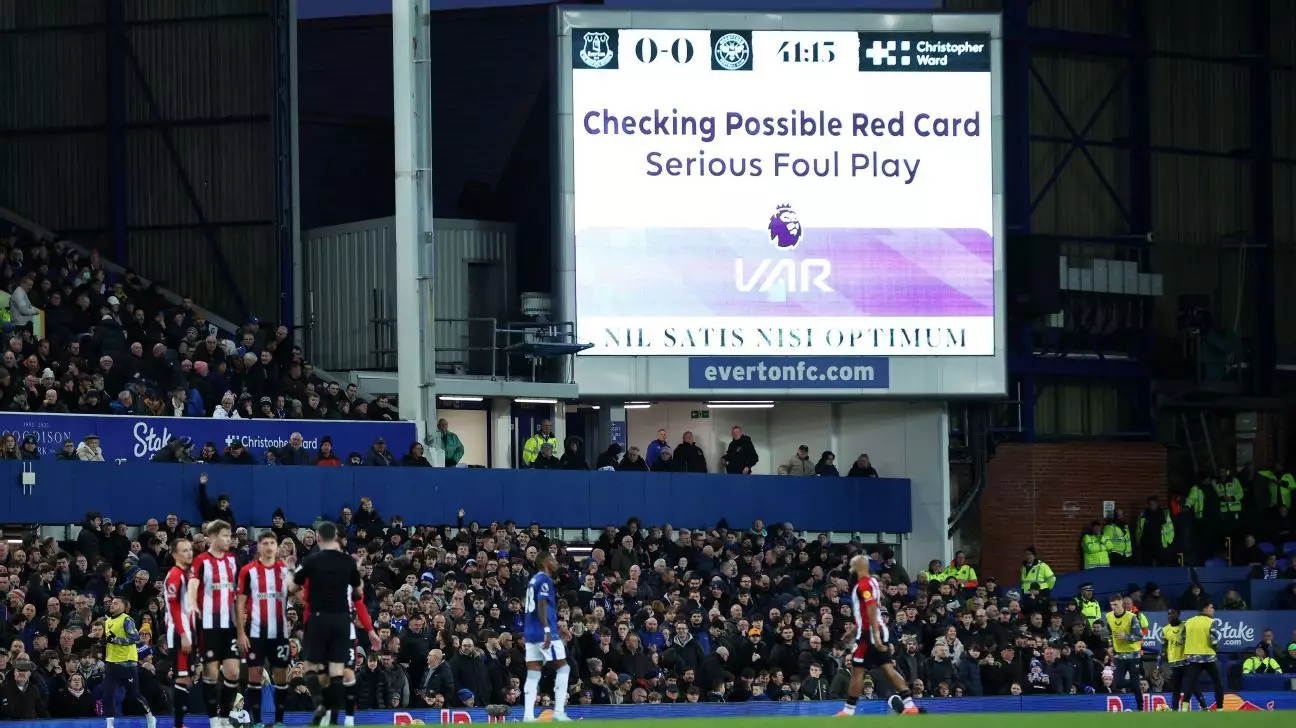In a recent Premier League clash, Brentford found themselves embroiled in controversy following a red card issued to captain Christian Nørgaard. During a tight 0-0 draw against Everton, the match took an unexpected turn when Nørgaard’s attempt to reach for a ball resulted in an incident with Everton’s goalkeeper, Jordan Pickford. The initial on-field judgment made by referee Chris Kavanagh deemed the play as no foul; however, VAR intervened and prompted Kavanagh to reconsider, ultimately leading to the expulsion of Nørgaard for serious foul play. This scenario underscores the ongoing debates surrounding the role and effectiveness of video assistance in officiating.
Brentford manager Thomas Frank was vocal about his displeasure regarding the decision to send off Nørgaard, arguing that such a call demonstrates a fundamental misapplication of the rules. Frank expressed that Nørgaard’s intent was not malicious; rather, it was a reaction to a high-pressure situation involving a ball entering the six-yard box. His assertion that the player was merely stretching to play the ball aligns with the broader sentiment that VAR, in this instance, lacked the contextual understanding necessary for a sound decision. Frank’s critique reveals a significant dilemma in contemporary football: the balance between technological intervention and the judgment of experienced referees.
Brentford’s successful appeal against the red card is a bittersweet victory. Had they lost, Nørgaard would have faced a suspension, sidelining him for crucial matches against Leicester City, Aston Villa, and Newcastle. The reinstatement of Nørgaard signals not only a relief for the team but also highlights potential flaws in the VAR system. Brentford fought back against a decision they felt wasn’t just, illuminating a need for considerable scrutiny of VAR protocols. The fact that a video review could overrule a direct decision made by an on-field official exemplifies the growing tensions between traditional refereeing and modern technology.
This incident serves as a microcosm of the larger conversation surrounding officiating in football. As the sport continues to evolve with technological advancements, the fundamental principles of officiating must adapt as well. The question arises: if VAR is here to enhance the game, how can it better align with the nuanced understanding of football that seasoned referees possess? Bridging this gap is critical for maintaining the integrity of the sport and ensuring that decisions reflect the spirit of fair play.
Overall, Brentford’s appeal victory not only protects their key player but also sheds light on the complexities of modern football governance. The friction between VAR intervention and on-field judgment signifies a need for continuous dialogue about the future of officiating. As the football community grapples with these challenges, finding common ground is essential to improve both the game and the officiating that governs it, reinforcing the ethical and competitive standards that define football.

